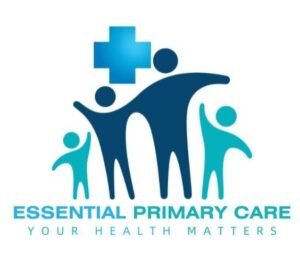What is Primary Healthcare?
Primary healthcare is the first point of contact for individuals seeking healthcare services. It is a comprehensive approach that focuses on the overall well-being of individuals and communities, emphasizing prevention, early intervention, and coordination of care.
Primary healthcare services are typically provided by general practitioners, family physicians, and other healthcare professionals who are trained to address a wide range of health concerns. These services include routine check-ups, screenings, vaccinations, management of chronic conditions, and referrals to specialized care when necessary.
The Benefits of Primary Healthcare
Primary healthcare plays a crucial role in ensuring the health and well-being of individuals and communities. Here are some key benefits:
- Prevention and Early Intervention: Primary healthcare focuses on preventive measures and early detection of health issues. Regular check-ups and screenings help identify potential problems before they become more serious, allowing for timely intervention and treatment.
- Continuity of Care: Primary healthcare providers develop long-term relationships with their patients, enabling them to understand their medical history, lifestyle, and unique healthcare needs. This continuity of care leads to better outcomes and improved patient satisfaction.
- Comprehensive and Coordinated Care: Primary healthcare providers coordinate and manage the overall care of their patients. They serve as a central point of contact, ensuring effective communication and collaboration between different healthcare professionals and specialists.
- Cost-Effectiveness: Investing in primary healthcare can lead to cost savings in the long run. By focusing on prevention and early intervention, primary healthcare helps reduce the need for expensive hospitalizations and emergency room visits.
Challenges and Solutions
While primary healthcare plays a crucial role in healthcare systems, there are several challenges that need to be addressed:
- Access to Healthcare: Many individuals, especially in underserved communities, face barriers to accessing primary healthcare services. This can be due to factors such as geographical distance, lack of transportation, and financial constraints. Efforts should be made to improve access through the establishment of more community health centers and mobile clinics.
- Healthcare Workforce Shortages: There is a shortage of primary healthcare providers in many regions, leading to long wait times and limited availability of services. Encouraging more medical students to pursue careers in primary care, providing incentives for practice in underserved areas, and expanding the scope of practice for other healthcare professionals can help address this issue.
- Health Information Technology: Adopting electronic health records and other health information technologies can improve the coordination and efficiency of primary healthcare services. This includes features such as telemedicine, which allows for remote consultations and follow-ups.
Conclusion
Primary healthcare is the foundation of a strong healthcare system. It ensures individuals receive comprehensive and coordinated care, with a focus on prevention and early intervention. By addressing challenges such as access to healthcare and workforce shortages, primary healthcare can continue to play a crucial role in promoting the health and well-being of communities.
